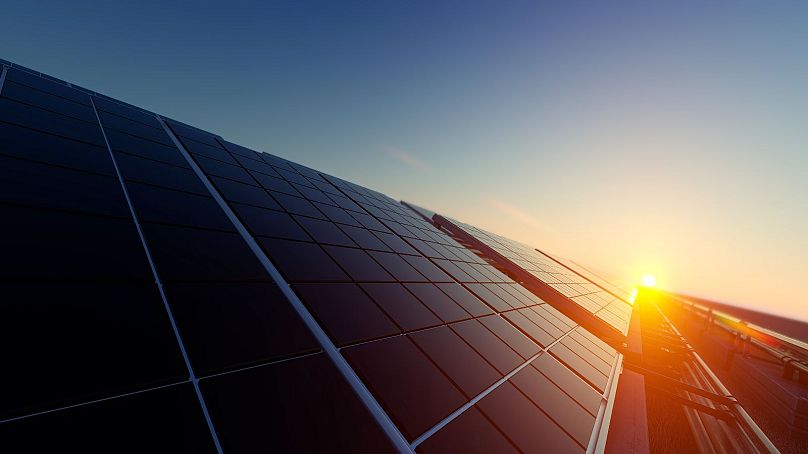Britain’s resort to coal power wasn't because solar panels can't handle the heat, say campaigners, as temperatures topped 30C.
The UK has fired up a coal power station for the first time in weeks - but it’s not because solar panels can’t handle the heat, as some have claimed.
 ADVERTISEMENT
ADVERTISEMENT
 ADVERTISEMENT
ADVERTISEMENT
As soaring temperatures saw more people switching on air con, the National Grid gave the green light to Ratcliffe-on-Soar power station in Nottinghamshire yesterday.
It marked the end of a 46-day run without coal-generated electricity, the longest break since summer 2020, in a move lambasted by green campaigners.
“It is a sign of failure that the National Grid is turning to one of the most polluting forms of power generation to deal with a summer heatwave that we know has been made worse because of climate change,” said Ami McCarthy, Greenpeace UK’s political campaigner.
But some commentators also pointed the finger at renewable technology. “The heatwave made solar panels too hot to work efficiently,” reported right-wing UK newspaper the Telegraph.
Industry groups say that’s not the full story, however. More solar power is produced in the summer than any other time - regardless of how hot it gets, says Solar Energy UK.
“The idea that solar panels wilt in the heat is a gross and fundamental misapprehension,” the member-led organisation hit back today.
Can solar panels cope in hotter weather?
It's true that panels are less efficient at higher temperatures. Photovoltaic (PV) cells convert a slightly lower proportion of sunlight into electricity in hotter conditions, solar groups explain.
They’re built to function from -40C to +85C. Performance does fall when temperatures go above 25C, but only by 0.34 per cent for every additional degree.
That’s pretty marginal stuff, according to Solar Energy UK. Even at close to boiling point, power output would only be around 20 per cent lower it says, other factors being equal.
“It’s not actually a big deal. High temperatures only marginally affect the overall output of solar power - it’s a secondary effect” says the UK’s leading technical expert on the technology, Alastair Buckley, Professor of Organic Electronics at the University of Sheffield.
“If it’s sunny and hot, you are going to get good power output. It doesn’t fall off a cliff.”
The university provides live PV generation data which backs this up; solar power has been serving around 27 per cent of the UK’s power needs each lunchtime for the past week.
And if you’re wondering, the UK isn’t being kitted out with different solar panels that can’t withstand its increasingly hotter summers.
“Solar power works perfectly well in the Saudi Arabian desert - and the same panels are being installed there as on rooftops in Birmingham or a field in Oxfordshire,” says Solar Energy UK Chief Executive Chris Hewett.
Coal and gas stations are less efficient in heatwaves too
The solar group has also been quick to point out that thermal power stations - including coal, gas and nuclear - are also affected by the heat.
The output of these plants is cut when the temperature of their cooling water rises, a function of the laws of thermodynamics, says Solar Energy UK. This effect will worsen as climate change continues to bite.
"It's true that panels are less efficient at higher temperatures - however, solar remains cost-effective against fossil fuels. It's certainly more climate effective,” a spokesperson for SolarPower Europe tells Euronews Green.
“Extreme temperatures - driven by climate change - are just another reason to deploy solar.
The solar roll-out needs to go hand in hand with grid and storage investment, we can't afford to waste a ray of sunshine, and we need the system to be ready for the electrified economy."
A new report from the European industry group finds that the main challenge to the UK’s solar rollout comes not from the sun, but “chronic underinvestment” in the country’s transmission and distribution networks.
“In summer, we should be turning to solar power, yet we currently have renewable energy going to waste because our grid cannot transmit the power, and hundreds of renewables projects which are on hold because they can’t get connected,” added McCarthy.
Coal is well on its way out of the UK’s energy system, however. The fossil fuel now generates just 2 per cent of the country’s electricity, and is set to be phased out by October 2024.











